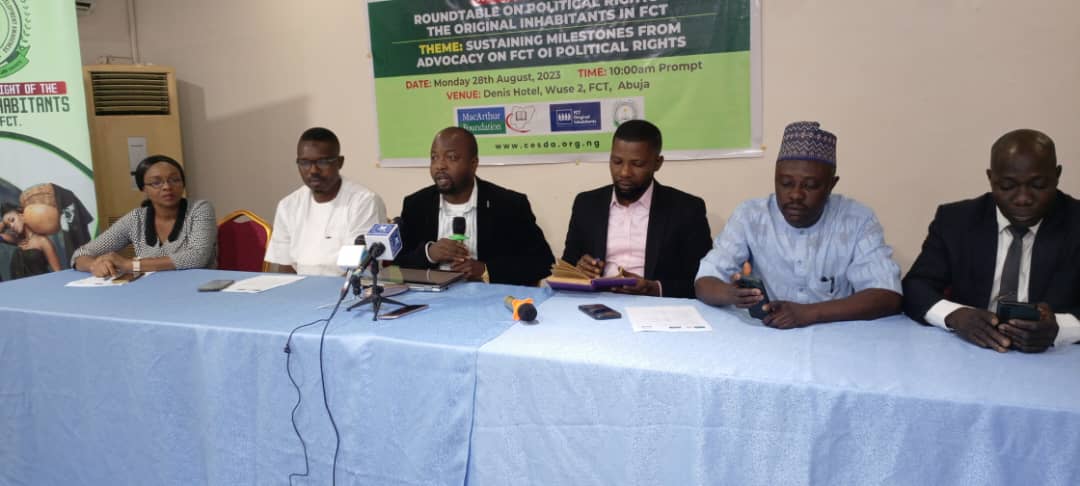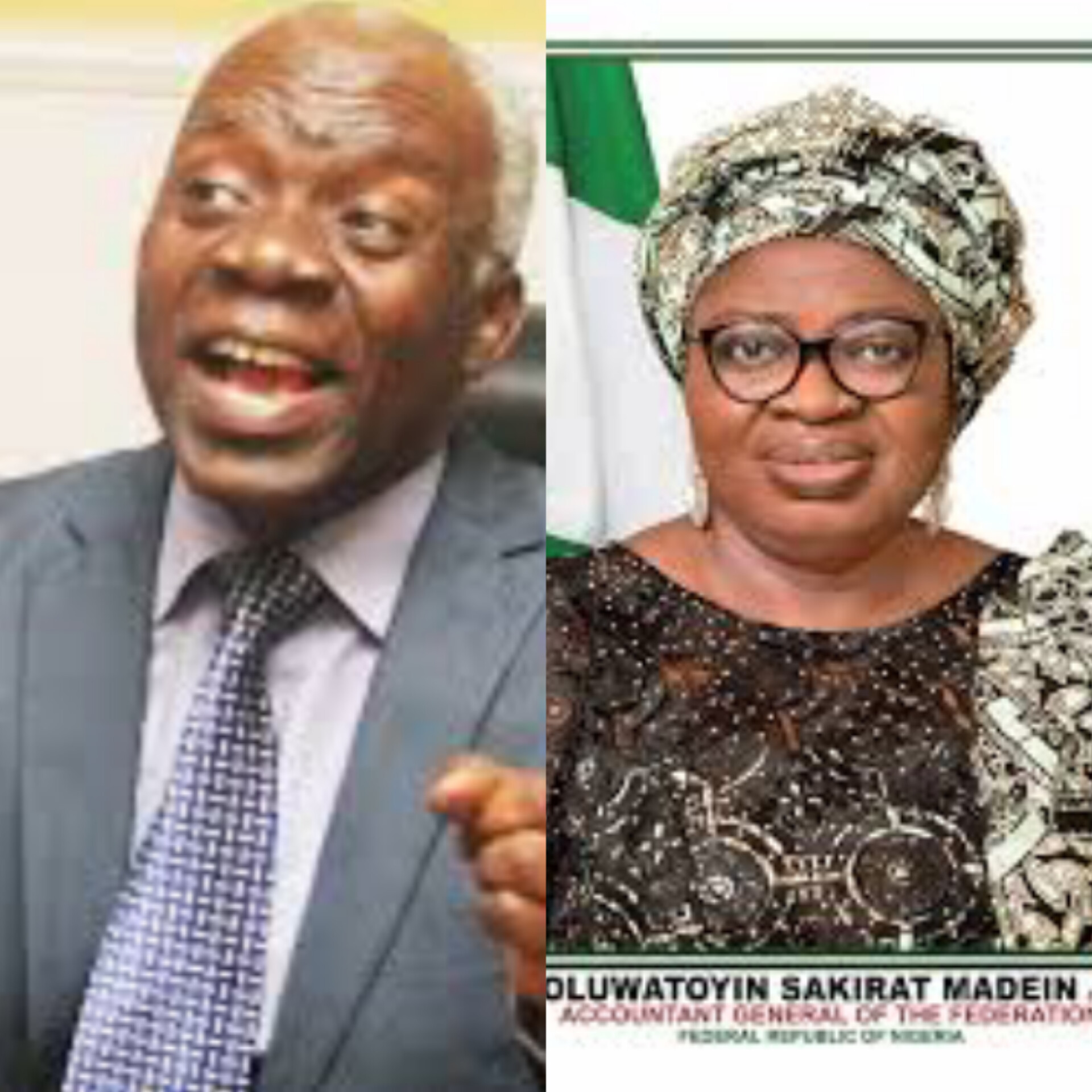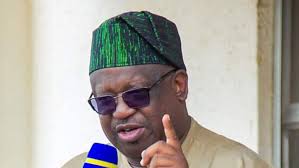News
Advocates push for second tier of government in FCT

Advocates focusing on the socio-cultural, political, and economic rights of the original inhabitants of Nigeria’s Federal Capital Territory, FCT)l, are pushing for a constitutional amendment to introduce a second tier of government in Abuja.
During a discussion at a one-day Roundtable on the Political Rights of Original Inhabitants in FCT, organized by the Centre for Environmental Sustainability and Development Awareness, CESDA, they emphasized that in order for FCT residents to experience the full benefits of democracy, they should possess rights equivalent to those of citizens in other states.

Representing the FCT Youth Network, Barr. Daniel Zhidi highlighted the potential advantages of implementing a second-tier government in FCT, including the possibility of establishing educational institutions.
Zhidi expressed concern over the absence of a state university in FCT, which has made it challenging for indigenous youth to secure admissions. This lack of educational opportunities is viewed as a violation of the educational rights of FCT natives.
Zhidi also pressed for the addition of another senatorial district in Abuja, along with the creation of two additional House of Representatives constituencies to ensure more comprehensive representation for the inhabitants of the region.
So , the constitution needs to be amended to reflect this so that FCT indigenes will feel the impact of democracy properly like other Nigerians. We have only two. Other states have more than four and if you compare the population, we are more than some states in Nigeria,” he said.
The legal practitioner called on all relevant organisations to engage the National Assembly for FCT to have more federal constituencies, stating that with that, the indigenous people and residents would feel the impact of democracy like other Nigerians.
“In addition to that, we want more area councils to be added to the six. Section 299 has said FCT should be taken as if it were one of the states. So, the relevant agencies also should look at it and find a way to approach the National Assembly so that “as if” would be removed.
He lamented that because of the expensive nature of land in Abuja Municipal Area Council, AMAC, indigenous youths are stranded as there is no place for them to expand and build their own houses.
Earlier, CESDA’s Executive Director, Mr. Olusola Babalola, highlighted that their ongoing project aims to tackle longstanding political, socio-cultural, and socio-economic challenges faced by the original inhabitants of Abuja.
He expressed concern over the appropriation of the ancestral land of FCT inhabitants without proper compensation, emphasizing that their sources of income have been forcibly removed, leaving them in a state of struggle.
He said “they are Nigerians just like every one of us. Do we say that it’s a course for they to have contributed their land for the wellbeing of the entire Nigeria?”
Highlighting CESDA’s focus on the political rights of original Abuja inhabitants, Babalola noted the organization’s extensive efforts in advocating alongside relevant stakeholders to ensure proper recognition of the people’s political rights.
He recalled the recent appointment of an FCT indigene, Zephaniah Jisalo, as a minister by President Bola Tinubu. This landmark appointment, Babalola explained, was the result of persistent advocacy from various groups striving for the acknowledgment of these rights.
Babalola emphasized CESDA’s request for fair compensation if the ancestral land of FCT indigenes is acquired. This compensation, he stressed, should be structured in a way that prevents further turmoil in Nigeria.
On his part, Mr. Armsfree Ajanaku, the Communications Manager for Programmes 2 at the Resource Centre for Human Rights and Civic Education (CHRICED), emphasized the need to safeguard the social, economic, and political rights of FCT indigenes.
Ajanaku highlighted the collaborative efforts of CESDA and other organizations in working together to advance the social and political rights of the original inhabitants of Abuja.
He praised the significant appointment, assessment, and confirmation of an FCT native as a minister. Ajanaku added that groups like CESDA, which are mobilizing people at the community level for the upcoming phase of this effort, deserve support from everyone.
“Considering the decade-long marginalisation and political relegation endured by the original inhabitant of the FCT who gave up their ancestral land for which they cannot be adequately compensated by the Nigerian state, there is a need to make it clear that the ministerial slot should not be seen as an end in itself.
“The political environment of FCT original inhabitants will not be completely achieved if all initiatives and advocacies do not translate into good governance. A such, representation must translate into concrete and practical improvement in the lives of the ordinary people of the FCT,” he said.
Ajanaku also called on the FCT administration to consult widely with original inhabitants of the FCT to understand their needs and aspiration as it proceeds to implement governance reforms in the FCT.

























